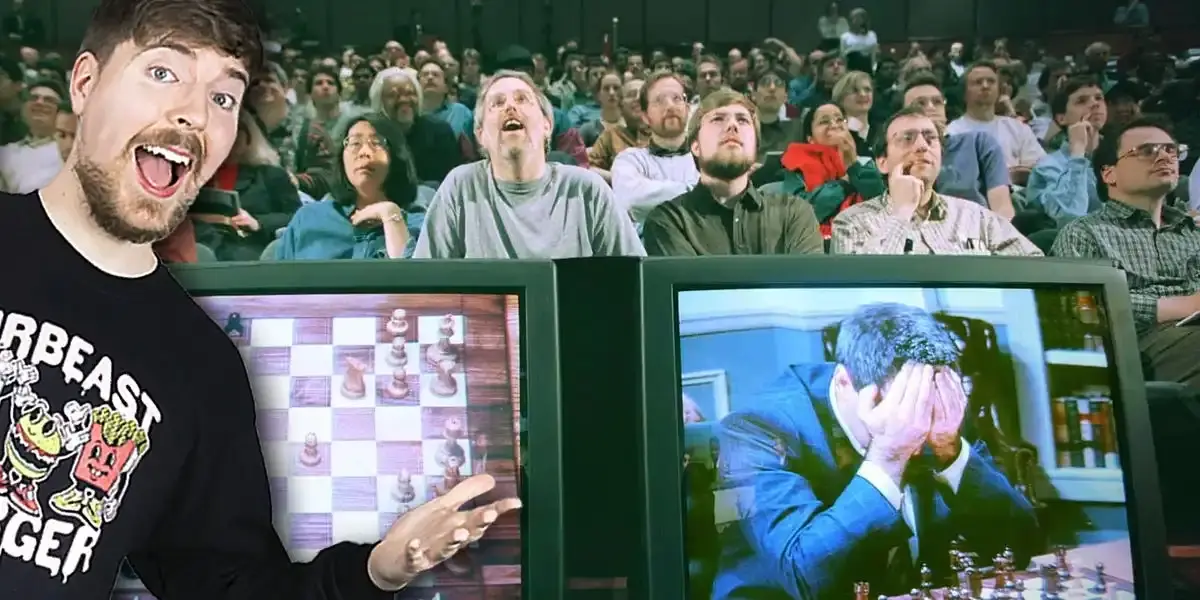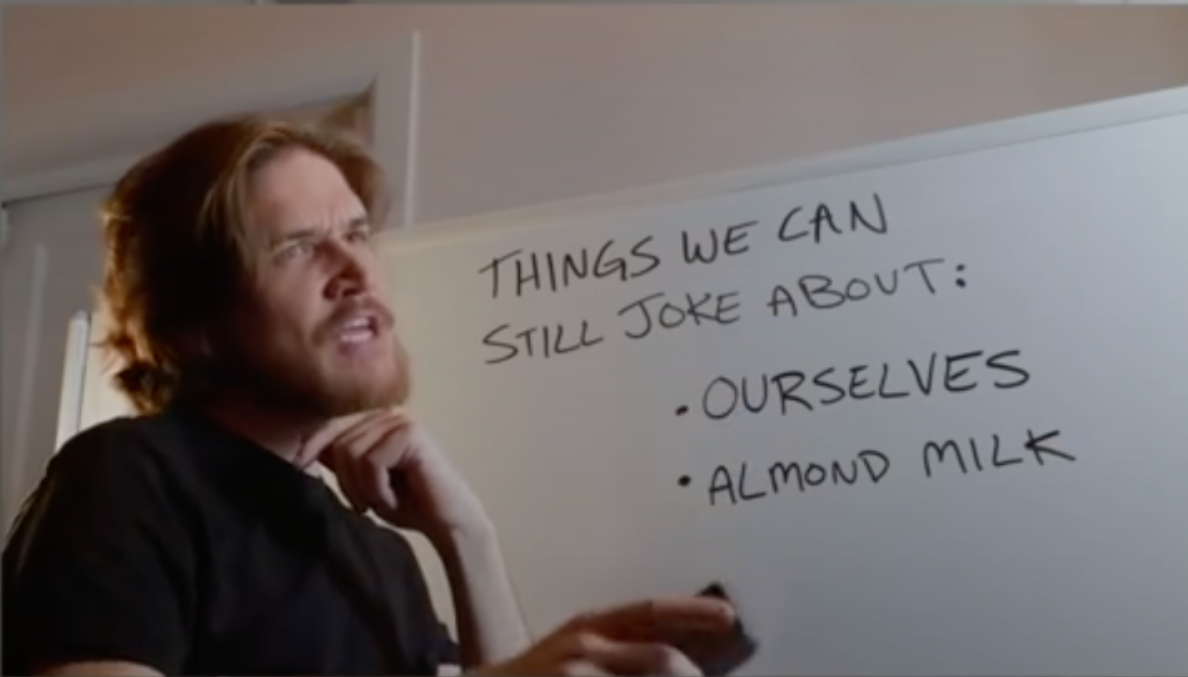Not paywalled, you can just click “No thanks” on the popup.
as we saw with computer chess, novelty can only be interesting for so long once there are no humans involved.
I think this is underestimating or even misunderstanding how entertainment works in our brains. The same game/movie/book produced once by humans, and once by computers, will not be enjoyed differently by our brains. No one watches the credits of a movie for that sweet dopamine hit of knowing it was made by real people.
With chess, the enjoyment isn’t watching the pieces move, it’s the strategy involved and even the rooting for a player. It’s a competitive activity. Movies/books/(most) games are not. It is just watching the pretty images on screen. The character running around the world, opening the loot box. The story in our head.
If the assertion is that computers will never be able to produce a video game or movie or book that a human would actually enjoy for any period, I think that is extremely naive; many thousands of people enjoyed Pong for years, and ChatGPT actually can write a working Pong clone right now. I would be surprised if it couldn’t write the kind of infinite-runner games that people still spend hours a day playing on their phones, with only a little debugging needed.
And this is just in the last 4 years, really. 20 years from now? Hoo boy, AI is going to be being used for a LOT of stuff that people do as jobs now (to our collective detriment).
But even if they stay up and running, the public perception of these “services” will likely change once social media is deprived of the last pretense that anything “social” is going on.
They will never let it get there. They will restrict AI use by third parties and users, in favor of their own AI content creation (or curated third party content), so they can keep strict control over how authentic their content feels. TikTok and Twitter don’t curate content themselves now (technically not true, they actually do curate the content quite heavily, via algorithms), because their whole model is letting others do it via “popularity” (via said algorithms). If the content that others produce is hurting their business, they’ll ban that content in favor of content they control.
a majority of the posting class is coming around to the idea that maybe this stuff is not great for us:
Are they?
TikTok is just TV again
TikTok is basically just broadcast TV now
I must have missed the part of the headline where they say that TV sucks. Most people still watch TV, even young people (they just don’t all do it on a TV).
My other hope is that when that time comes, real human-made art made for connecting with human audiences can be more readily recognized by society as the valuable thing it is on its own, not only when it is put to work in service to some marketer turning a profit for some CEO.
This is already recognized by society at large. The problem is that it’s not translating into legislation, and legislation is the only way to control corporations. Just look at the state of book publishing; ebook platforms are absolutely destroying the industry, largely unbeknownst to buyers (and unbeknownst by design, because corporations know that buyers would be upset if they knew).
The real question is whether society will come to realize that unending, corporate profit-seeking (which enriches one at the expense of others), and healthy societies (which are based on mutual cooperation), are mutually exclusive goals.
I completely and totally agree with the article that the attention economy in its current manifestation is in crisis, but I’m much less sanguine about the outcomes. The problem with the theory presented here, to me, is that it’s missing a theory of power. The attention economy isn’t an accident, but the result of the inherently political nature of society. Humans, being social animals, gain power by convincing other people of things. From David Graeber (who I’m always quoting lol):
Politics, after all, is the art of persuasion; the political is that dimension of social life in which things really do become true if enough people believe them. The problem is that in order to play the game effectively, one can never acknowledge this: it may be true that, if I could convince everyone in the world that I was the King of France, I would in fact become the King of France; but it would never work if I were to admit that this was the only basis of my claim.
In other words, just because algorithmic social media becomes uninteresting doesn’t mean the death of the attention economy as such, because the attention economy is something innate to humanity, in some form. Today its algorithmic feeds, but 500 years ago it was royal ownership of printing presses.
I think we already see the beginnings of the next round. As an example, the YouTuber Veritsasium has been doing educational videos about science for over a decade, and he’s by and large good and reliable. Recently, he did a video about self-driving cars, sponsored by Waymo, which was full of (what I’ll charitably call) problematic claims that were clearly written by Waymo, as fellow YouTuber Tom Nicholas pointed out. Veritasium is a human that makes good videos. People follow him directly, bypassing algorithmic shenanigans, but Waymo was able to leverage their resources to get into that trusted, no-algorithm space. We live in a society that commodifies everything, and as human-made content becomes rarer, more people like Veritsaium will be presented with more and increasingly lucrative opportunities to sell bits and pieces of their authenticity for manufactured content (be it by AI or a marketing team), while new people that could be like Veritsaium will be drowned out by the heaps of bullshit clogging up the web.
This has an analogy in our physical world. As more and more of our physical world looks the same, as a result of the homogenizing forces of capital (office parks, suburbia, generic blocky bulidings, etc.), the fewer and fewer remaining parts that are special, like say Venice, become too valuable for their own survival. They become “touristy,” which is itself a sort of ironically homogenized commodified authenticity.
edit: oops I got Tom’s name wrong lol fixed
As more and more of our physical world looks the same
The Tyranny of the Algorithm: Why Every Coffee Shop Looks the Same
Haha I was actually paraphrasing myself from last year, but I’ve seen that because lots of readers sent me that article when it came out a few months later, for obvious reasons!
First of all, thank you for the fantastic feedback.
We live in a society that commodifies everything, and as human-made content becomes rarer, more people like Veritsaium will be presented with more and increasingly lucrative opportunities to sell bits and pieces of their authenticity for manufactured content (be it by AI or a marketing team), while new people that could be like Veritsaium will be drowned out by the heaps of bullshit clogging up the web.
This is exactly the point I was trying to make in the last section, except I used MrBeast as an example because I felt like it was easier for readers to accept his propensity for cutting corners to make a buck. But yes, I agree, things will get worse. Before it was common knowledge that cigarettes caused cancer, a whole lot of people had to get cancer.
I also think it’s important to remember that people don’t actually follow Veritasium directly. They follow him indirectly by means of YouTube. If people could actually follow him directly he wouldn’t need to worry about competing with AI crap for the attention of YouTube’s algorithm. But of course, YouTube would never allow that.
I also think it’s important to remember that people don’t actually follow Veritasium directly. They follow him indirectly by means of YouTube. If people could actually follow him directly he wouldn’t need to worry about competing with AI crap for the attention of YouTube’s algorithm. But of course, YouTube would never allow that.
People can and do follow him directly: https://www.patreon.com/veritasium
He has 7,463 people actively giving him money each month, entirely divorced from YT.
His continued engagement with the YT algorithms is about growing his viewership. This is true for basically all the largest YT and Twitch creators, who have to diversify their revenue streams off of just those platforms, in order to get truly large (and certainly more stable).
Very good point! He’ll be in a reasonably good place when YouTube goes to shit.
AI could be a creative tool for good, in the right hands; unfortunately, most people will use it to produce crap and to spread sick disinformation that, in many cases, will be libelous if not downright corrupt. The art of persuasion should have guardrails because, essentially, most people are pimps who stink excuses.
One can just click the reader view/mode button if you’re on Firefox and bypass paywalls and popups. Doesn’t work on all sites but works on this one.






